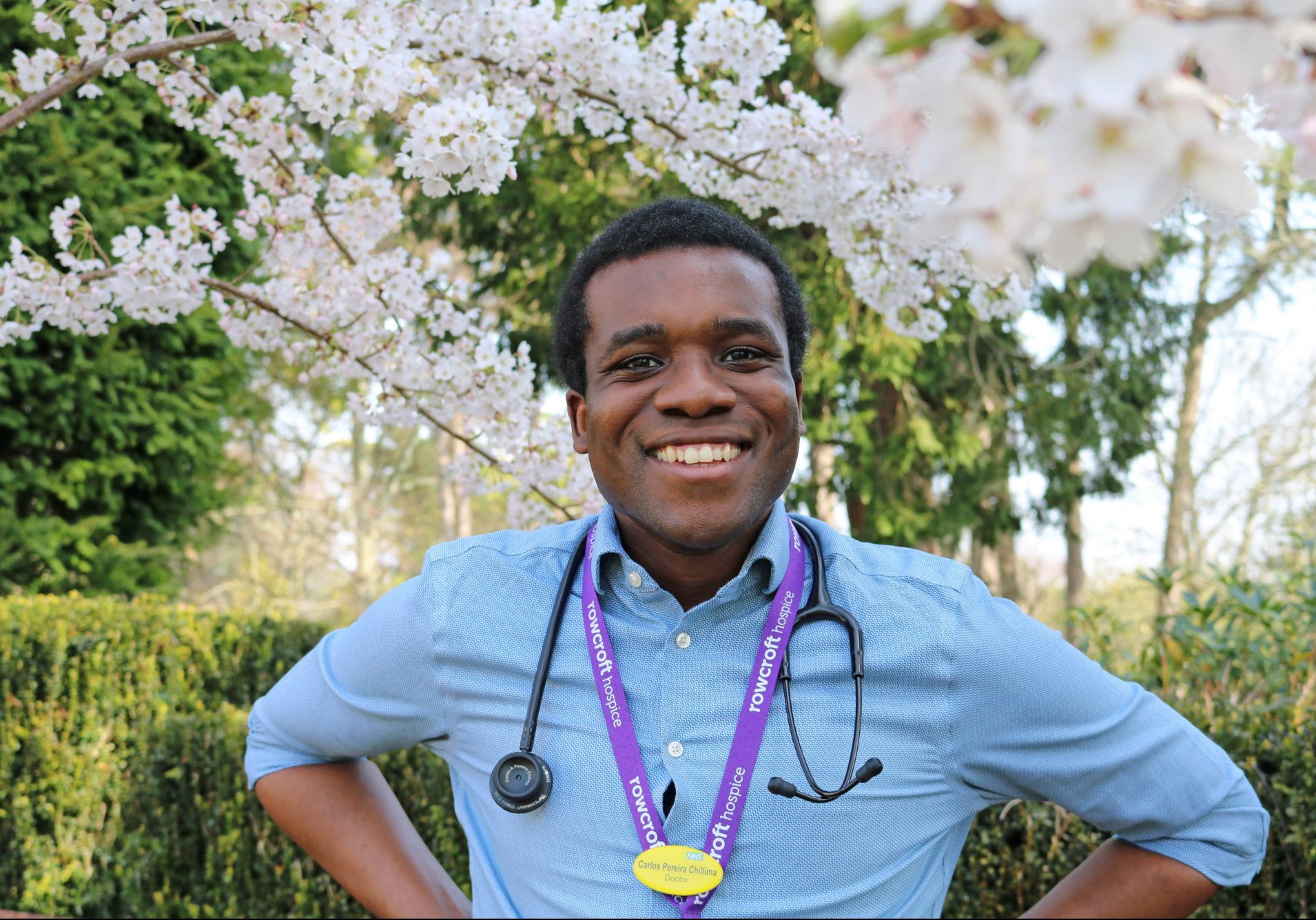The COVID-19 crisis has thrown junior doctors in at the deep end: they’ve had to get to grips with the enormous challenge of caring for their patients through an unprecedented national emergency. When the pandemic first hit, there was no text-book to follow; even many of the most experienced doctors were overwhelmed. During the spring lockdown, when COVID-19 cases were escalating, Rowcroft’s junior doctors relocated to Torquay Hospital to offer assistance and care to patients there. The junior doctors have now returned to Rowcroft. We feel so very proud of them all, and incredibly lucky to have them with us once again.
Carlos was working as a junior doctor in Rowcroft’s Inpatient Unit before the pandemic broke out – a time of calm before the storm. Here he describes his experience with Rowcroft, and explains how the small, everyday acts of kindness − such as truly listening to a patient – can make all the difference to the quality of care that a patient experiences.
What have you enjoyed about your experience at Rowcroft?
It’s just a wonderful place to work. Being able to really get to know your patients and to focus on what is important to them adds a sense of connection and purpose that highlights how important the care we provide is and how rewarding it is to be in this profession. The team is also incredible! It’s quite a unique collection of inspiring, insightful, and deeply caring people. There isn’t a single day when I don’t appreciate how lucky I am to work here.It’s been an amazing experience! It’s an enormous privilege being in a position to make a big difference at a crucial point in someone’s life.
“There isn’t a single day when I don’t appreciate how lucky I am to work here.”
Can you describe what ‘patient-centred care’ means to you?
Trying to understand what is most important for each person, especially if time is short, and focusing on that. Ultimately respecting their wishes, their autonomy and their priorities. I believe it also requires avoiding over-medicalising end of life care, and respecting people’s dignity.
Is there anything new you have learnt about the role of spiritual care in a patient care setting?
I used to think spirituality in this context was synonymous to religion and my time at Rowcroft has been quite crucial at appreciating this isn’t necessarily the case. Meeting a range of people has helped me see how beliefs shape end-of-life care and the role that spirituality can play in this.
What have you learnt about the role of advance care planning in end-of-life care?
I think it’s importance has been underscored throughout this role. It’s such an important part of ensuring a patient’s autonomy and dignity are respected. There has always been some trepidation approaching these conversations over how people may react but I found that, done in a tactful way, I have never had a poor reaction. I find this is something patients have often considered already, and most appreciate having these conversations.
What have you learnt about communications skills with patients and family members?
The greatest lesson I have learnt is the importance of truly listening and making no assumptions when trying to understand what is important to patients and their families. I’ve encountered such a wide range of beliefs, perspectives, and attitudes from patients. It has demonstrated to me that without understanding people, we are limited in the ways we can help.
“The greatest lesson I have learnt is the importance of truly listening and making no assumptions”
Is there anything else you would like to share about your time at Rowcroft?
When speaking to patients and their families, I’m constantly humbled by the sheer amount of affection they have for Rowcroft. I feel incredibly fortunate to be able to work with such a wonderful team and to provide such a meaningful service.

